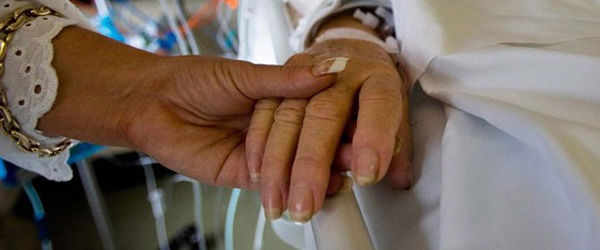The May 1 noon Mass at Our Lady of the Bright Mount Polish Church was followed by a program that included children from the Saturday Polish School singing favorite songs and readings of poetry written by the former Karol Wotilja, Cardinal-Archbishop of Cracow. At the end of the program the children sang the “Hymn to the Black Madonna,” one of Pope John Paul II’s favorite hymns to the patroness of Poland, Our Lady of Czestochowa. Among those enjoying the program was Jadwiga Narebska, who for the last 28 years has taught history, religion and geography to Polish-American children at Our Lady of the Bright Mount. Later, in the parish hall where Polish pastries were served, she and others viewed a delayed telecast in Polish of the beatification ceremony earlier that day in Rome. As she visited with old friends, Narebska --- born into a wealthy family in 1920s Poland --- recalled with fondness her family life before World War II. And she remembered with clarity, and pain, how her mother died in a Nazi concentration camp during the German occupation of Poland; her brother died in the Warsaw uprising; and her father was tortured in a prison and died a few days later at their home. Only she and another brother survived. Narebska went to England after the Warsaw uprising and in 1952 immigrated to Los Angeles and became a member of Our Lady of the Bright Mount Church. She, like many members of this parish, recall with pride when Cardinal-Archbishop Karol Wotilja from Cracow --- two years before he was chosen pope --- visited her parish in August 1976.“He represents so much to the people of Poland and the Universal Church,” said Narebska. “Pope John Paul II was always faithful to Poland, and his love of church and country has been ours.”Over the centuries, the Polish people have endured much sorrow and pain as invading armies have crossed its borders, placing Poland at the mercy of other countries, ideologies and leaders that have changed the face of the country over and over.Yet the spirit of the Polish people, influenced largely by the Catholic Church, has remained indomitable, clearly in evidence at last Sunday’s celebration.“Poland is more than a country,” explained Bright Mount parishioner George Kalinski, Commissioner of the Superior Court, Long Beach. “The church has always played a major role in Poland. During the partition of Poland in 1797 and until 1920, Poland as a political entity did not exist. It was occupied by Russia, Prussia and Austria. It was the church that kept the spirit of Poland alive.” Polonia, the term for people living outside the country, is important to understand, Judge Kalinsky continued. “This parish is religious, cultural, American and social --- it all sort of melts together,” he explained. “One reinforces the other, I think. The church and its celebrations are what kept that spirit of independence alive throughout all of our history. Many times we, the Polonia, were the only free voice.” In August 1976, Cardinal Wotilja --- in the U.S. for the Eucharistic Congress --- was invited to visit Our Lady of the Bright Mount in L.A. Judge Kalinsky was invited to a dinner to meet Cardinal Wotilja. “When you meet him, you will know why he is so special,” he said. “The experience of meeting such a person was unforgettable.”The major voice to be heard in Poland’s fight for freedom from communism came from the church. Pope John Paul II visited his homeland in 1979 while Poland was under communist rule. “There Pope John Paul II said, ‘Do not be afraid; the future is yours,’” said Andrew Kozlowski, president of the Polish Center of Los Angeles, and a Bright Mount parishioner. “Pope John Paul helped to set in motion a stand against communist repression.”Indeed, John Paul’s visit soon led to the birth of the Solidarity movement in which the Church played a major role, leading to the overthrow of communism in the Eastern bloc countries within the decade. {gallery width=100 height=100}gallery/2011/0506/jppolish{/gallery}

